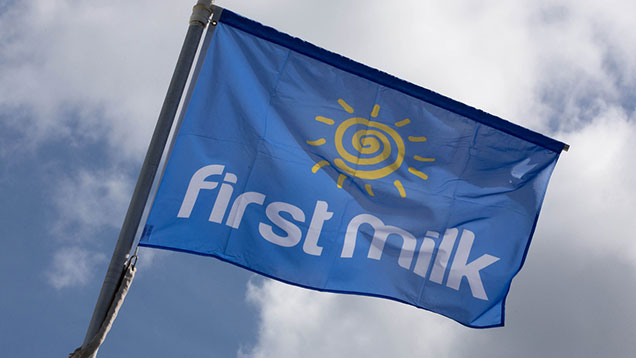First Milk to give farmers financial update at AGM
 © Tim Scrivener
© Tim Scrivener Members of dairy co-op First Milk should receive more specific figures on how the business is performing at its AGM on Friday (30 January).
The firm has insisted it is in strong shape for the year ahead, after it chose to delay farmers’ milk payments by two weeks and raise the amount of capital they had to invest each month to fill a £10m cashflow hole.
On Wednesday (28 January), First Milk released its accounts for the year to March 2014, which showed an improved performance on 2012-13.
But the figures do not reflect the brutal trading conditions of the past nine months, which saw prices of farmgate milk and wholesale dairy products crash.
See also: Q&A – First Milk payment delay explained
The co-op told members at a series of meetings how sliding dairy product values caused it to incur losses and limited how much it could borrow from banks.
Speaking to Farmers Weekly, First Milk’s group finance director Gerry Sweeney said there was no plan to put out a detailed trading update publicly.
“We are not going to issue a formal interim statement, but at the AGM the intention is to go beyond words and add some specific numbers,” he said.
First Milk’s 2013-14 accounts showed that group turnover was up 15% to £610m.
Before one-off costs, the co-op made a £3.5m pre-tax profit, compared with a £0.8m pre-tax loss in 2013. It also reduced its net bank debt from £73.3m to £62.7m.
But the business recorded a £4.3m pre-tax loss if extra charges are included, such as the closure of the Maelor cheese packing plant in May 2014 which cost £7.5m.
First Milk’s agreement for borrowing with its bankers was scheduled to expire in August, but has been extended to January 2016.
“The announcement made a couple of weeks ago gives me confidence in the balance sheet to attract lenders to support the business. When we negotiate we will do that from a position of strength.” Gerry Sweeney, First Milk’s group finance director
Mr Sweeney said the payment deferrals and raising of capital contributions solved the immediate cashflow issues that had developed.
“The announcement made a couple of weeks ago gives me confidence in the balance sheet to attract lenders to support the business. When we negotiate we will do that from a position of strength.”
When asked if he was worried about farmers handing in their 12-month notice to leave the co-op, Mr Sweeney said there was “no complacency” about that.
He added that First Milk would now work to improve the milk price it paid its 1,200 farmers.
The accounts included a report by the auditor Pricewaterhouse Coopers which said the ability of the business to realise its assets and discharge liabilities depended on the continued support of lenders, meeting the forecast financial performance and securing financing beyond the current period, due to finish in January 2016.
“These conditions… indicate the existence of material uncertainties which may cast significant doubt upon the group’s and the society’s ability to continue as a going concern,” the auditors said.
Mr Sweeney added: “Unfortunate as the last couple of weeks has been, we are certainly in a far better place than we were prior to making those decisions and we can be confident about the future.”
